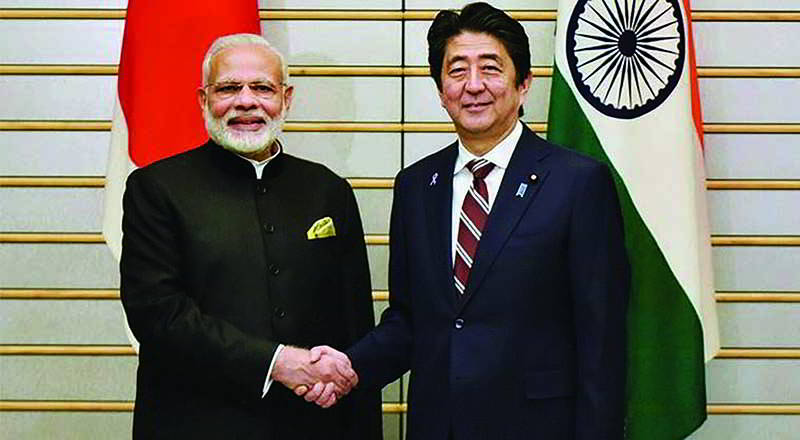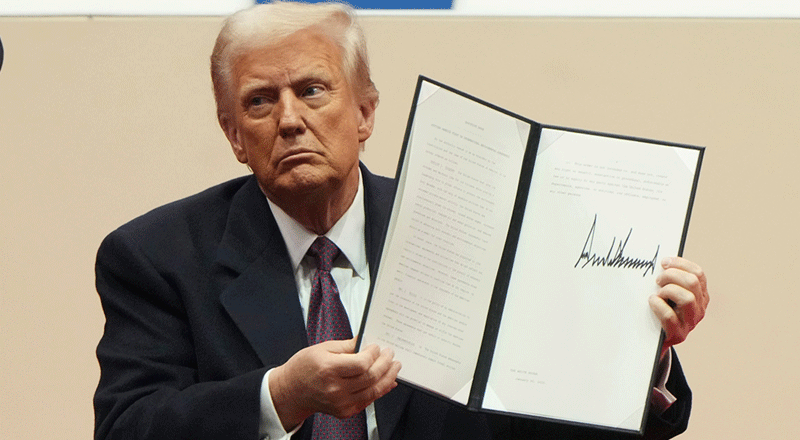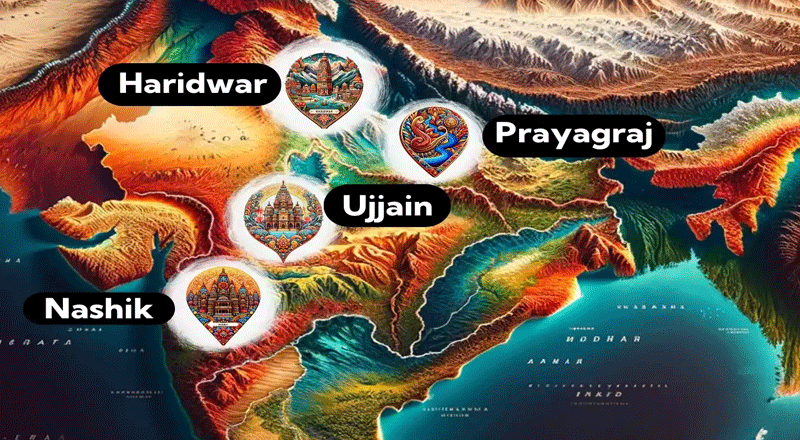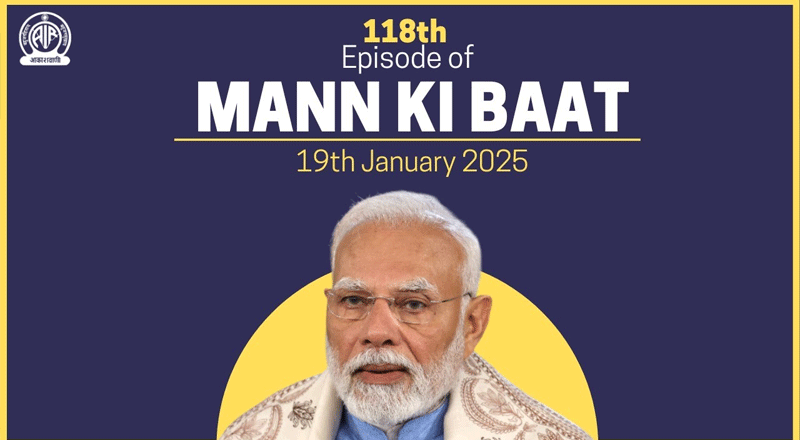The Prime Minister, Shri Narendra Modi addressed the ‘Make in India: India-Japan partnership in Africa and digital partnership’ seminar in Tokyo.
The Prime Minister explained how the Union Government is focused on improving ease of doing business, and ease of living for the citizens. He expressed happiness at the large presence of Japanese companies in India. Noting that Japan has been a partner in many important industrial projects in India, the Prime Minister explained the strength of India’s economic performance over the last four years. He said India is today the fastest growing major economy and mentioned some major transitions in the Indian economy, including the move from informal to formal economy, digital transactions and GST etc.
The Prime Minister said that India’s rising economy, fast growing middle class and young demography offer many new opportunities to Japanese investors. In this context, he mentioned low cost manufacturing, IT industry, and electric mobility, among other sectors.
The Prime Minister also emphasized on the shared values between India and Japan. He said that both countries would look to develop stronger development partnerships in other parts of the world, including the Indo Pacific, South Asia and Africa.
A few important announcements at the Seminar
1. India and Japan committed to working together to promote peace, stability and prosperity, through economic growth and development in the Indo-Pacific, including Africa, by enhancing connectivity through quality infrastructure and capacity building of our partners. Both countries are of firm belief that all development cooperation must be carried out in an open, transparent and non-exclusive manner and based on international standards including respect for sovereignty and territorial integrity of nations, responsible debt financing practices, and in alignment with local economic and development strategies and priorities.
2. By synergizing India’s “Act East Policy” and Prime Minister Modi’s 10 guiding principles for India’s sustained and regular engagement with African countries, with Japan’s “Expanded Partnership for Quality Infrastructure Initiative” and TICAD VI Nairobi declaration, the two countries welcomed and committed to further consultations with host Governments to foster tangible cooperation focusing on development of connectivity and other infrastructure in the Indo-Pacific. India and Japan welcomed progress in identification of specific cooperation, including but not limited to the following:
2.1 Cooperation in Sri Lanka, such as the development of LNG-related infrastructure
2.2 Cooperation in Myanmar, synergizing development efforts in the Rakhine State by collaborating in housing, education and electrification projects;
2.3 Cooperation in Bangladesh, for enhancing connectivity by way of four-laning of road and reconstruction of bridges on the Ramgarh to Baraiyarhat stretch, and providing rolling stock and constructing the Jamuna Railway Bridge over the Jamuna River; and
2.4 Cooperation in Africa, such as organising an SME development seminar in Kenya and seeking a possibility of a collaborative project in the area of health service such as developing a cancer hospital in Kenya.
The two countries also acknowledged the importance of expanding cooperation in human resource development, capacity building, healthcare, livelihood, water, sanitation and in the digital space, and of working together to extend access to education, health and other amenities, and assist the people of the Indo-Pacific, including Africa, to realize their developmental potentials.
Further, the two countries will work towards establishing an India-Japan Business platform to enhance the exchanges between Indian and Japanese businesses toward developing industrial corridors and industrial network in the region. In this context, the two countries welcomed the Memorandum of Understanding between NEXI and ECGC, which is expected to promote development of concrete India-Japan business projects in the region.
Both India and Japan believe that their development cooperation in the Indo-Pacific can contribute to unlocking the potential for an equitable, positive and forward-looking change in the region, and contribute to socio-economic development of Africa.
India-Japan Cooperation Act East Forum
India’s North East Region is one of the main areas of India’s Act East Policy. The region also shares historical and traditional bonds with ASEAN countries, and has the potential to be India’s springboard to the ASEAN region. Enhancing connectivity within North East Region and with its neighboring countries is essential to tap its potential and presents crystallized examples of the shared vision between Japan and India as expressed in the Vision Statement.
The Act East Forum established last year has served as a driving force to advance India-Japan cooperation in the North-East. Its second meeting was held on 8th October with the following outcomes –
2.1 Expediting implementation –
• Meghalaya North East Connectivity
Phase 1: Tura-Dalu (NH-51)
Phase 2: Shillong-Dawki (NH-40)
• Mizoram North East Coonectivity
Phase 1 & 2: Aizawl-Tuipang (NH-54)
• Sikkim: Biodiversity Conservation & Forest Management
• Nagaland: Forest Conservation Livelihood Improvement
2.2 Japan and India reaffirmed their intentions to proceed with –
Completion of Gelephu-Dalu Corridor in collaboration with the ADB including Dhubri/Phulbari bridge project, which will be the longest river bridge in India if realized, as Phase 3 of North East Road Network Connectivity Improvement Project.
Consideration of developing Main District Roads (MDRs) and Other District Roads (ODRs), which will have positive socio-economic effect.
ODA loan to the “Project for Renovation and Modernization of Umiam-Umtru Stage-III Hydroelectric Power Station”.
Sustainable Forest Management in Tripura, and consideration for a similar project in Meghalaya.
2.3 Skill and Vocational Initiatives –
To launch “Japan-India North East Bamboo Initiative” in view of the significance bamboo plays in the region. Industrial uses of bamboos and bamboo forest management will be pursued under this initiative, building on the successful first “North East Bamboo Workshop.
To promote Japanese language education in the North East as a part of the commitment made by the two Prime Ministers to establish Japanese language certificate courses at 100 higher educational institutions in India. The Forum welcomed the interest for such courses expressed by Cotton University and Gauhati University in Assam state, EFLU in Meghalaya state as well as NIT-N in Nagaland state, to which Japan is prepared to provide appropriate support through Japanese Language Teachers Training Centre. More proposals from North East States are welcome.
To promote skill training including Japanese language for caregivers from North East who visit Japan for training under TITP (Technical Intern Training Program) ,which contributes to enhancing cooperation between the two countries under the Asia Health and Wellbeing Initiative.
2.4 Disaster Management:
Japan’s contribution to resilient infrastructures in North East Region and through Capacity Development Project on Highways in Mountainous Regions –
• Knowledge sharing through the Japan-India Workshop on Disaster Risk Reduction
• Pursuit of better utilizing JICA Knowledge Co-Creation Program (Group & Region Focus) to provide relevant training opportunities for the officials of North East.
The Forum will review the progress of projects under its initiatives and further consider future cooperation concerning the North East Region of India.





